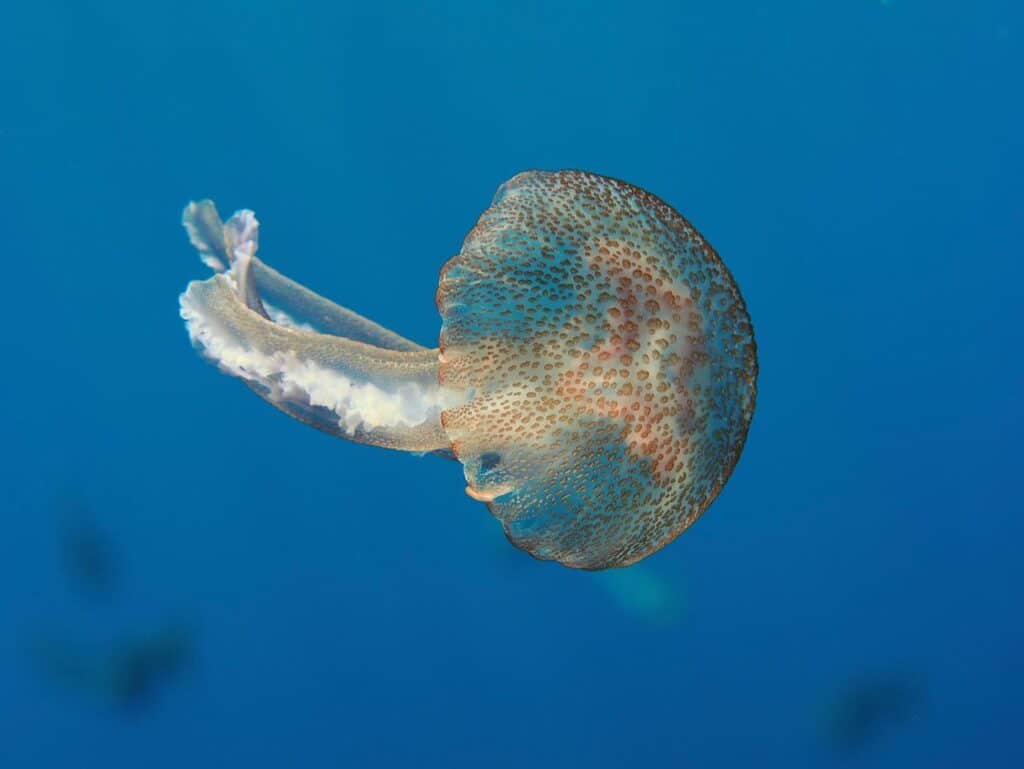Watch out for jellyfish on Riviera beaches

At the height of the summer holidays, the beaches in the south are packed with bathers. But when you’re enjoying the water, you need to keep an eye out for jellyfish.
At this time of year, it’s not uncommon to see jellyfish on the beaches of the Côte d’Azur, particularly the pelagic jellyfish, which is very common in the Mediterranean and whose sting causes itching and a burning sensation.
Where are the jellyfish on the Côte d’Azur?
Over the summer months, jellyfish can be spotted off the coast’s largest beaches. Cannes, Nice, Antibes. Are they around right now? A very helpful application will let you find out. Every year, the ACRI laboratory at Sophia-Antipolis produces a real-time map with information on recent jellyfish sightings near the beach you want to head to. It exists in smartphone app format, and bathers themselves are in charge of keeping it up to date regularly. As a secondary source of information, the Méduséo website provides the same service.
According to both platforms, the stinging sea creatures appear to be staying away from the Principality at the moment.
How do you treat a jellyfish sting?
Even if you’re careful, you could still be stung by a jellyfish. If so, there are three main ‘do’s’ to observe, as the Alpes-Maritimes fire service reminds us:
- Remove any tentacles that are left on the skin using tweezers, or by rubbing wet sand over them.
- Rinse the wound with seawater, rather than shower water, which increases the pain.
- Disinfect with antiseptic
At the same time, here are a few ‘don’ts’ in the event of a sting:
- Do not apply alcohol
- Do not suck/pump out the venom
- Do not urinate on the wound, as this may cause infection
What happens if you get stung by a jellyfish?
We mentioned a burning sensation and itching after a sting from a pelagic jellyfish, which is the worst stinger of its kind around the French coast. At first, the pain may feel like a small electric shock. The level of pain will then increase for around thirty minutes, which is why it is important to deal with it quickly.
The biggest risk is an allergic reaction. If you experience breathing difficulties, dizziness or vomiting, or if the person who has been stung faints, call the emergency services immediately on 15 (SAMU) or 18 (fire department).
Protected areas are set up on the beaches in summer, using safety nets. There is one on Larvotto beach, on the beaches in Beaulieu-sur-mer beaches, on Marquet beach in Cap d’Ail and many others.
Article written by Paul Charoy













